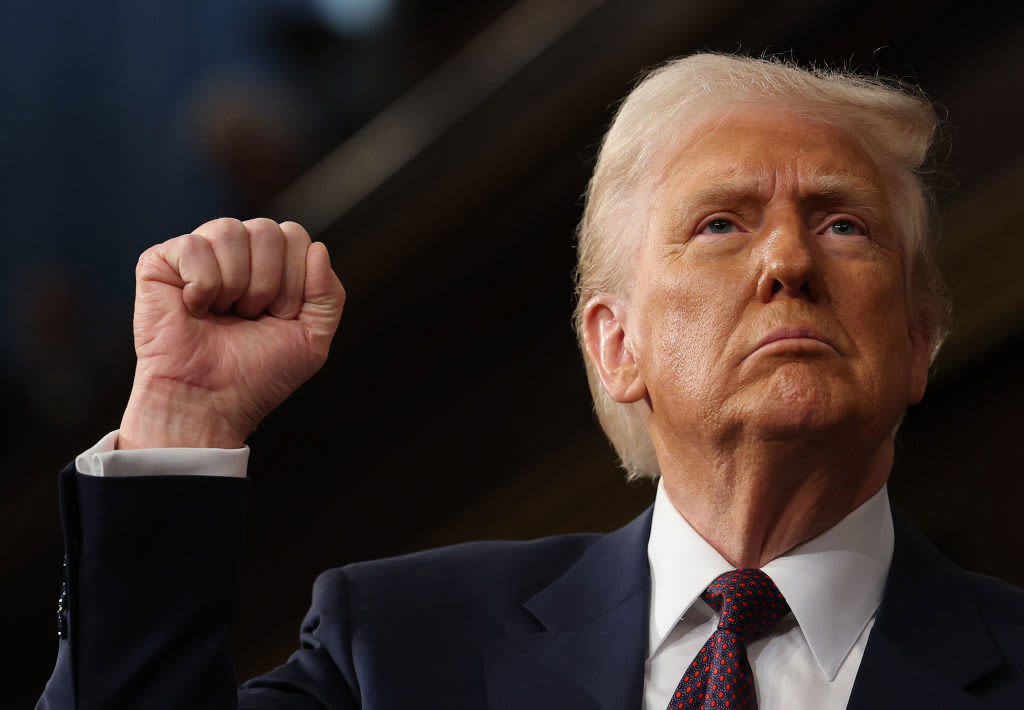Small Businesses Bear The Brunt: The Lasting Impact Of Trump's Tariffs

Table of Contents
Increased Costs and Reduced Profit Margins for Small Businesses
Trump's tariffs directly increased the cost of doing business for countless small businesses. The resulting financial strain has had a lasting impact on their bottom lines and overall viability.
Rising Input Costs:
Tariffs dramatically increased the cost of imported raw materials, components, and finished goods. This impact was keenly felt across numerous sectors. The manufacturing industry, for example, saw substantial increases in the price of steel and aluminum, crucial components for many products. Similarly, the agricultural sector faced higher costs for imported fertilizers and machinery.
- Steel: Prices surged by an estimated 25%, impacting manufacturers of everything from cars to construction materials.
- Aluminum: Experienced a similar price increase, affecting industries like packaging and aerospace.
- Lumber: Tariffs on Canadian lumber led to significant price hikes, impacting the construction and furniture industries.
These increases weren't trivial; many small businesses saw their input costs rise by 15-25%, significantly impacting their profitability. The economic impact on these businesses was immediate and severe, particularly for those with lower profit margins and less financial resilience.
Difficulty Passing on Increased Costs to Consumers:
Small businesses often struggle to pass these increased costs onto consumers. Fierce competition from larger companies and price-sensitive consumers limit their ability to raise prices significantly. This leaves many small businesses absorbing the increased costs, leading to reduced profit margins and even losses. The trade war, therefore, disproportionately hurt smaller entities that lacked the pricing power of larger corporations. The inability to adjust prices resulted in a significant squeeze on profitability, forcing many to cut costs or reduce production.
Reduced Competitiveness and Market Share Loss
Trump's tariffs created an uneven playing field, disadvantaging small businesses and contributing to market share losses.
Competition from Domestic and Foreign Companies:
Larger domestic businesses, with greater financial resources, were better equipped to absorb the increased costs associated with tariffs. They could maintain prices and competitiveness, leaving small businesses at a disadvantage. Furthermore, foreign companies not subject to the same tariffs maintained a competitive edge, further eroding the market share of American small businesses. This led to a contraction of the market for many smaller companies, severely impacting their growth prospects.
Loss of Export Markets:
Retaliatory tariffs imposed by other countries in response to Trump's tariffs severely impacted the ability of small businesses to export goods. This resulted in a significant reduction in revenue and limited growth opportunities. Data from the U.S. Census Bureau shows a decline in small business exports following the implementation of the tariffs. The loss of international sales significantly hurt small businesses heavily reliant on export markets for their revenue streams.
Adaptation Strategies Employed by Small Businesses
Faced with increased costs and reduced competitiveness, small businesses adopted various strategies to survive.
Sourcing Alternatives and Restructuring Supply Chains:
Many small businesses sought alternative suppliers, often at a higher cost. This involved reshoring (bringing production back to the U.S.) or nearshoring (moving production to nearby countries). These efforts, while necessary, were often challenging and costly, requiring significant investment and logistical reorganization. Successful adaptation frequently involved identifying new, more reliable, and potentially more expensive suppliers outside the directly impacted trade routes.
Increased Automation and Efficiency Measures:
Some small businesses invested in automation and technology to improve efficiency and reduce labor costs. However, the initial investment required for such upgrades can be a significant hurdle for many small businesses, who often lack access to the necessary capital. This highlights the financial challenges small businesses face when trying to upgrade operations.
Government Support and Relief Measures:
While some government aid programs were intended to help small businesses cope with the impact of Trump's tariffs, their effectiveness and accessibility remain debated. Many small businesses struggled to access these programs, highlighting the limitations of government intervention in mitigating the full impact of trade policy changes. The efficacy of these programs varied, with some businesses benefiting more than others. The overall outcome demonstrates the need for more targeted and effective government aid in future trade policy shifts.
The Lingering Shadow of Trump's Tariffs on Small Businesses
Trump's tariffs have had a lasting negative impact on small businesses, disproportionately affecting their profitability and competitiveness. The challenges faced in terms of increased costs, intensified competition, and the need for costly adaptation strategies continue to linger. The economic impact of the trade war was severe and long-lasting for many small businesses.
To support the continued growth and prosperity of small businesses, we must advocate for policies that foster a fair and predictable trade environment. This includes tariff reform and targeted assistance programs designed to alleviate the lasting consequences of Trump's tariffs. Further research is needed to understand the full extent of the damage and to develop effective strategies for future resilience. We must work together to create an environment where small businesses can thrive, free from the unpredictable shocks of protectionist trade policies. Let's actively work towards ensuring a sustainable economic future for all small businesses, moving beyond the lingering shadow of Trump's tariffs.

Featured Posts
-
 Semana Santa O Semana De Turismo El Caso De Uruguay Y Su Laicidad
May 12, 2025
Semana Santa O Semana De Turismo El Caso De Uruguay Y Su Laicidad
May 12, 2025 -
 Keanu Reeves John Wick Fact Checking The Single Appearance Claim
May 12, 2025
Keanu Reeves John Wick Fact Checking The Single Appearance Claim
May 12, 2025 -
 Prince Andrews Bombastic Temperament Uncovered By Former Royal Employees
May 12, 2025
Prince Andrews Bombastic Temperament Uncovered By Former Royal Employees
May 12, 2025 -
 Ufc 315 Mm Amania Coms Guide To Betting Odds And Potential Winners
May 12, 2025
Ufc 315 Mm Amania Coms Guide To Betting Odds And Potential Winners
May 12, 2025 -
 Controversial Shane Lowry Video Divides American Golf Viewers
May 12, 2025
Controversial Shane Lowry Video Divides American Golf Viewers
May 12, 2025
